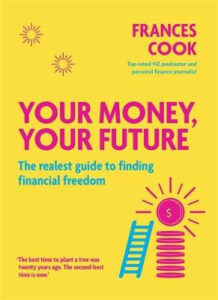
Who do you take Money advice from?
Written by R. A. Stewart
Everyone has some form of advice on what you should do with your money. From co-workers and family members to bloggers and those who are qualified to provide financial advice. A lot of people will have some form of opinion on what you should do with your money. So much so that it pays to not speak about your financial affairs with anyone; not that it is any of their business.
There are some red flags to note from any of these so-called financial experts. These red flags are just as applicable to the man in the street as they are to a qualified financial advisor.

Red Flag number one: The advisor has no money
I knew someone who turned a couple of hundred dollars into $6,000, then $10,000, then $20,000, and more. In the early stages when he had $6,000, his colleagues suggested to him that he should get a deposit for a new car with that money. I said “That is the stupidest advice you could ever get because not only will you end up with nothing but you will have a debt.”
He ignored his colleague’s advice.
I told him that he should at least deposit at least $1040 in his Kiwisaver in order to get the $520 government money in July. I don’t know if he followed that advice.
Red Flag number two: They do not know anything your your personal circumstances
If you receive financial advice from someone who does not know a thing about your financial situation then treat that advice with some kind of scepticism. The advice and acting on it must be based on your personal circumstances and your goals for the future. Your age and health are other factors which have to be taken into account. It is your responsibility to make it known to a financial advisor what your future plans are but that does not mean that you should just reveal all to a random cold caller. Use your discretion and common sense when discussing anything with others.

Red Flag number three: They advise you to invest your life savings in one company
This is a major red flag! Diversification spreads your risk but plunging all of your money in the one company can lead to financial ruin and affect your lifestyle big time. It may be true that there are some people who made a killing by plunging but it is equally true that a lot of people lost everything they invested. The only reason why a paid financial advisor would tell you to invest all of your money in the one company is that they are more interested in their commission rather than your financial well-being.
Red Flag number four: You are advised to invest in cryptocurrency
This is a major red flag. No one should ever advise you to invest in any kind of cryptocurrency. This is a high risk speculation rather than an investment. Only discretionary spending money should be used for purchasing Bitcoin. If you are young and have no commitments then buying Bitcoin will provide you with a bit of excitement, but it is certainly no substitute for your retirement fund.
Red Flag number five: The advice is unsolicited
If you receive a cold call from someone claiming to be a financial advisor then hang up or delete the email. Tell them that you already have an advisor. Whatever you do, don’t engage with them. If you have responded to anything they have said, then say, “Let me talk to my financial advisor first.”
A typical scammer does not want you to talk to anyone else about their so-called opportunity.
Learn to spot the terminology these scammers use in their correspondence and it will help you to avoid becoming their next victim.
About this article
This article is of the opinion of the writer and may not be applicable to your personal circumstances, therefore discretion is advised. You may use this article as content for your blog, website, or ebook. Read my other articles on www.robertastewart.com























